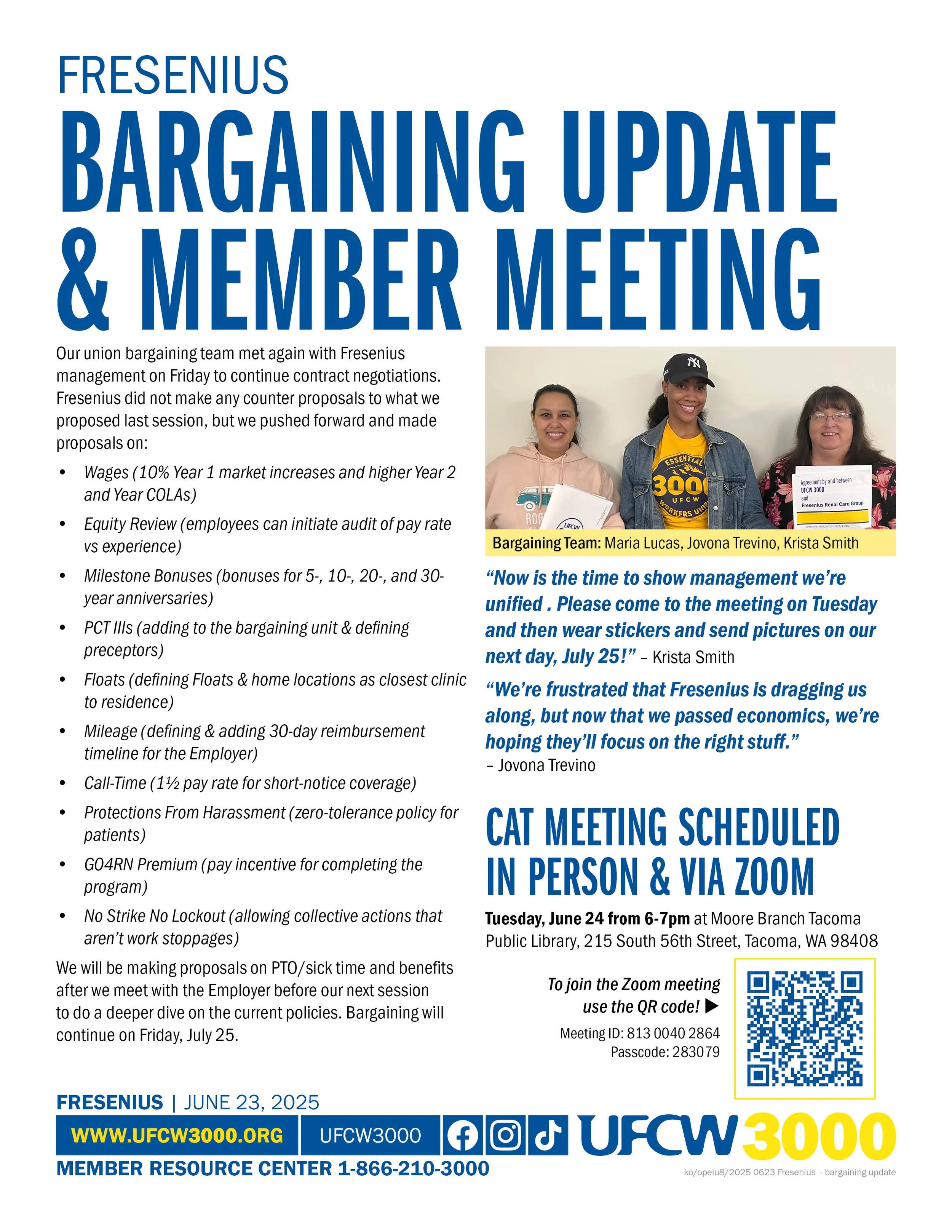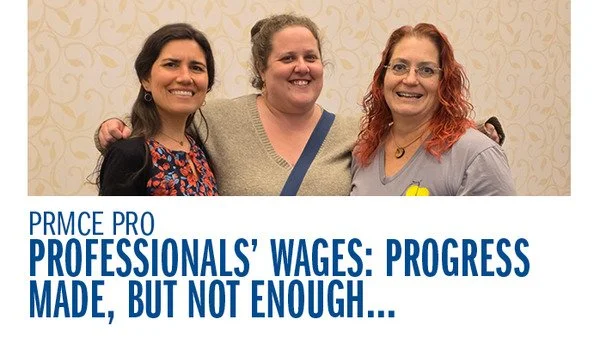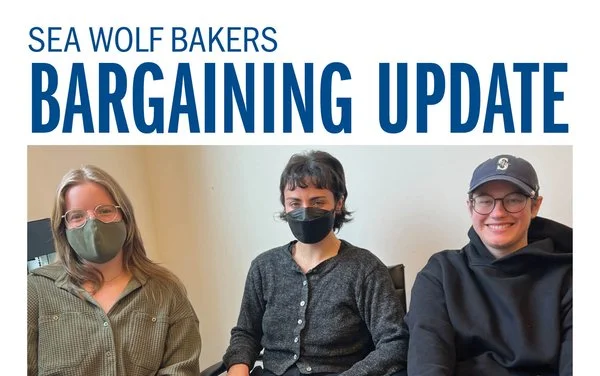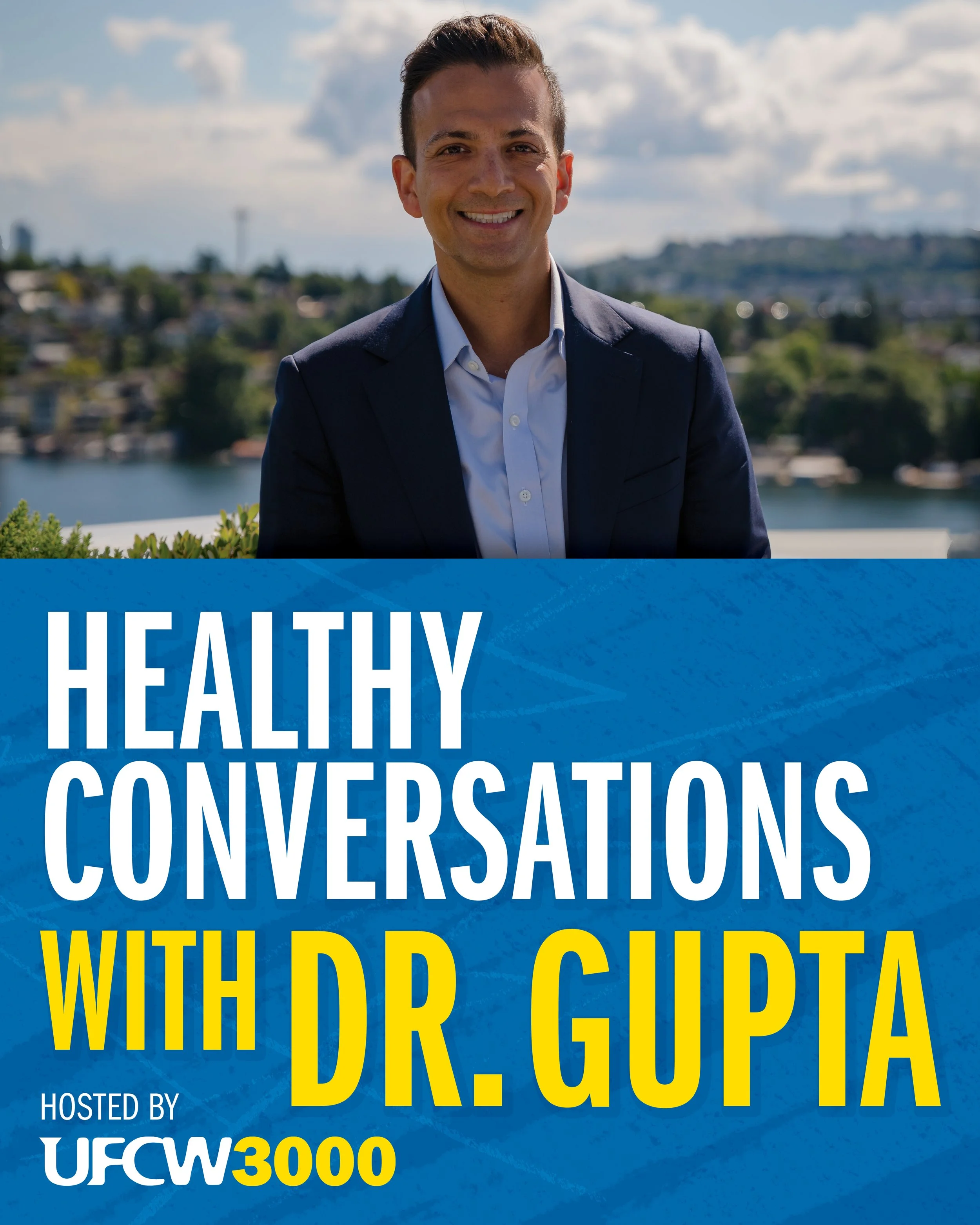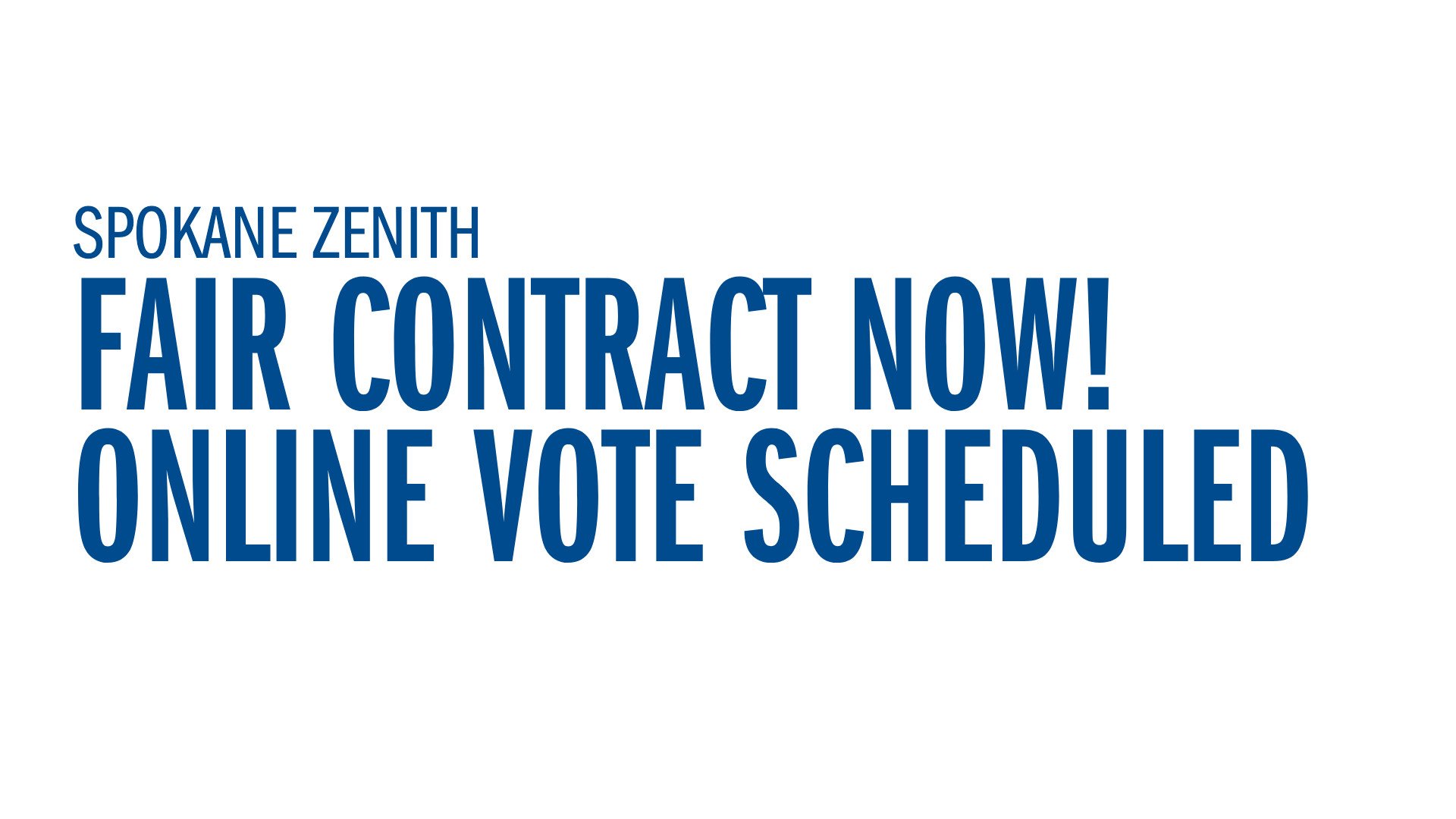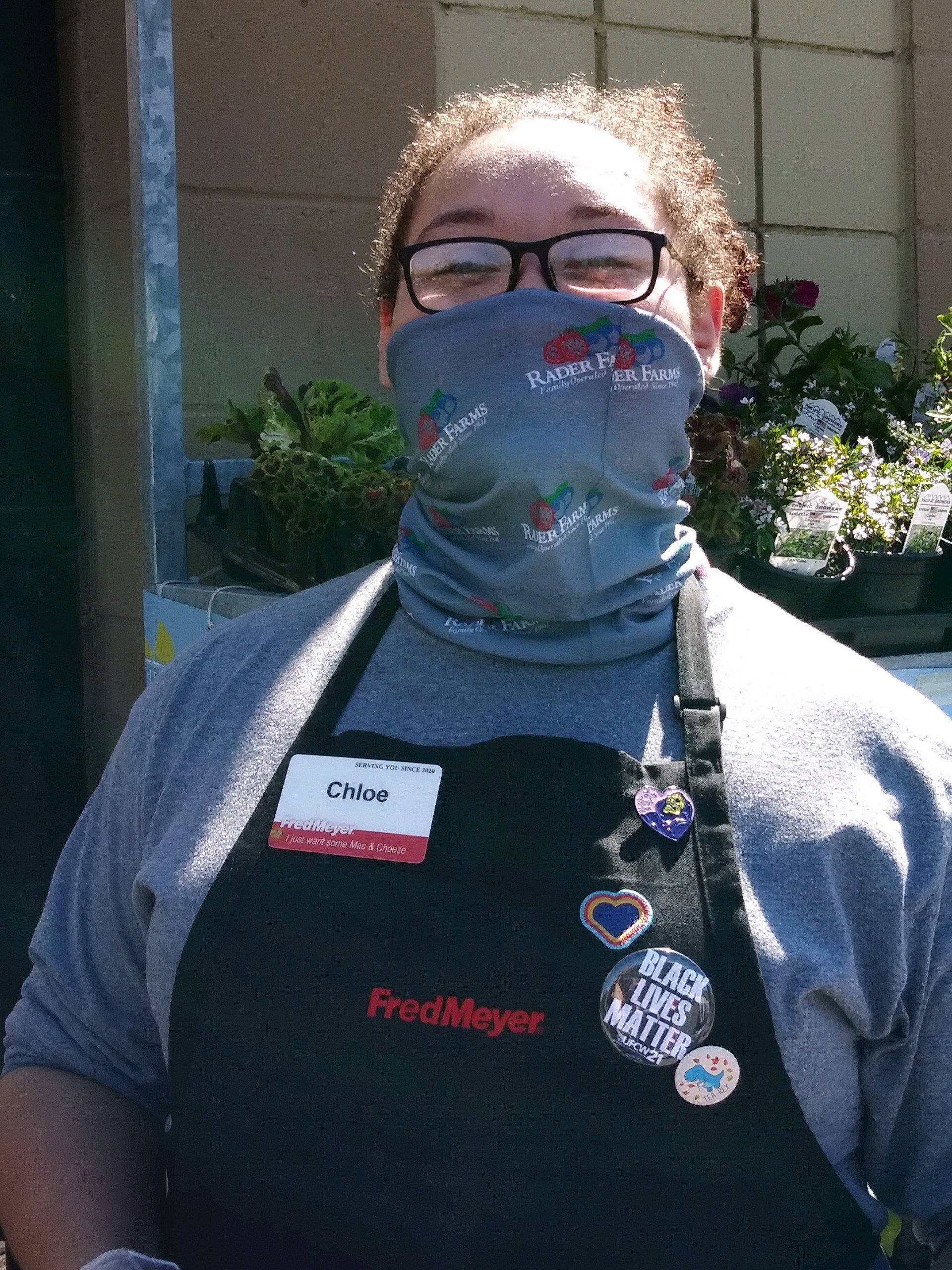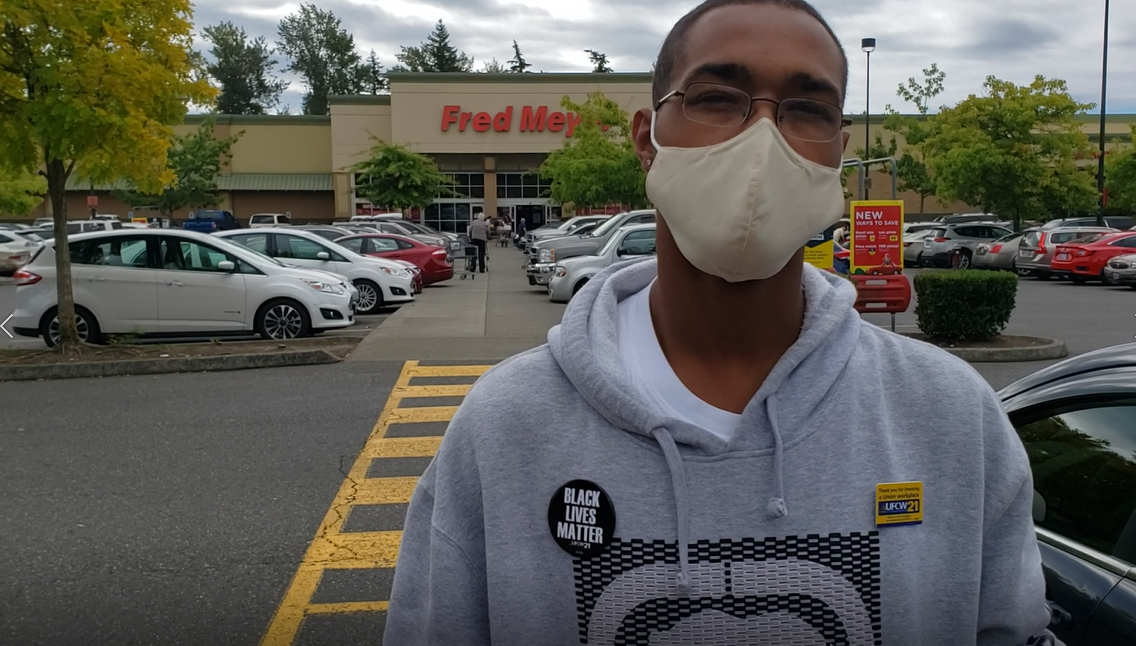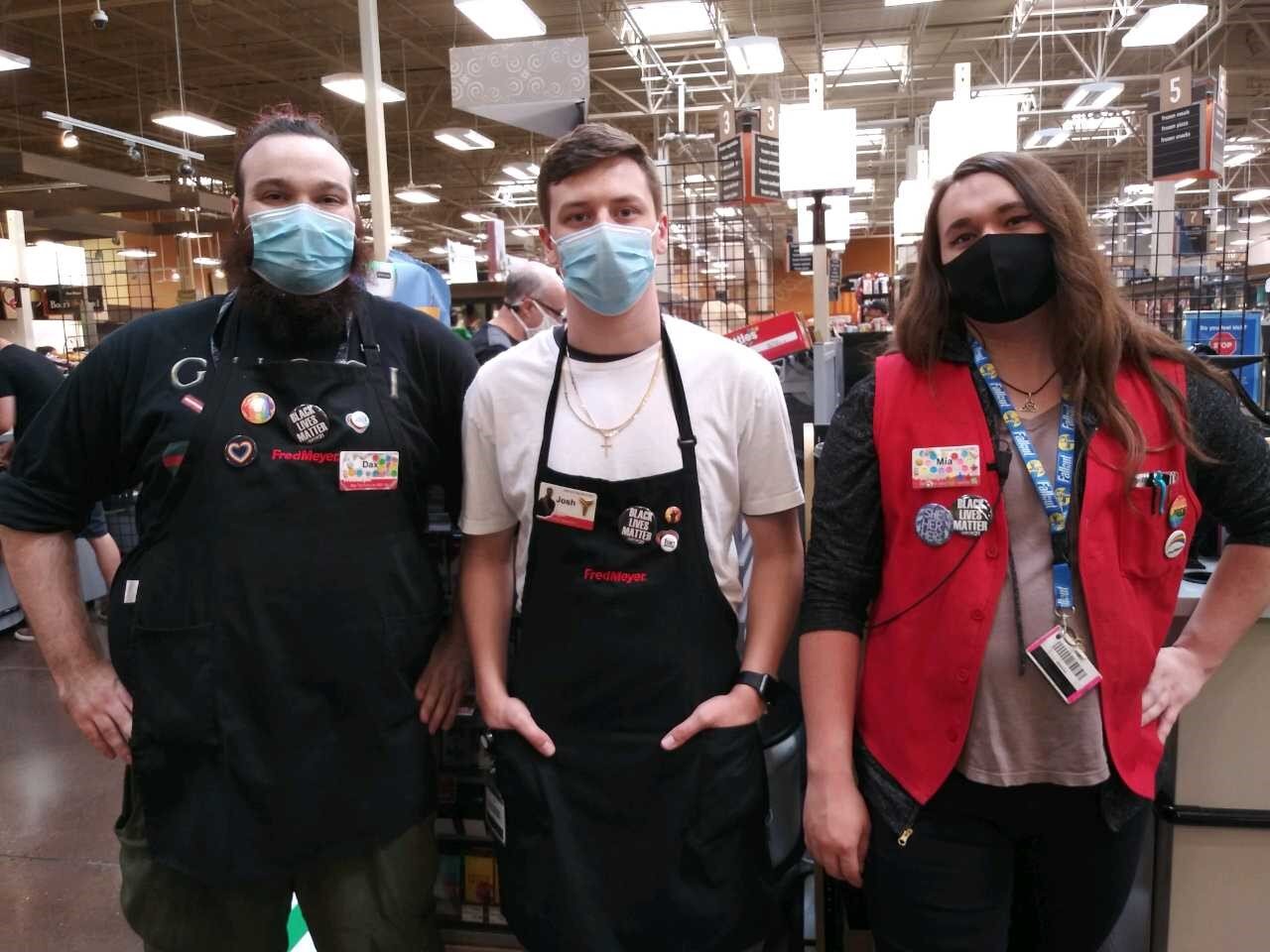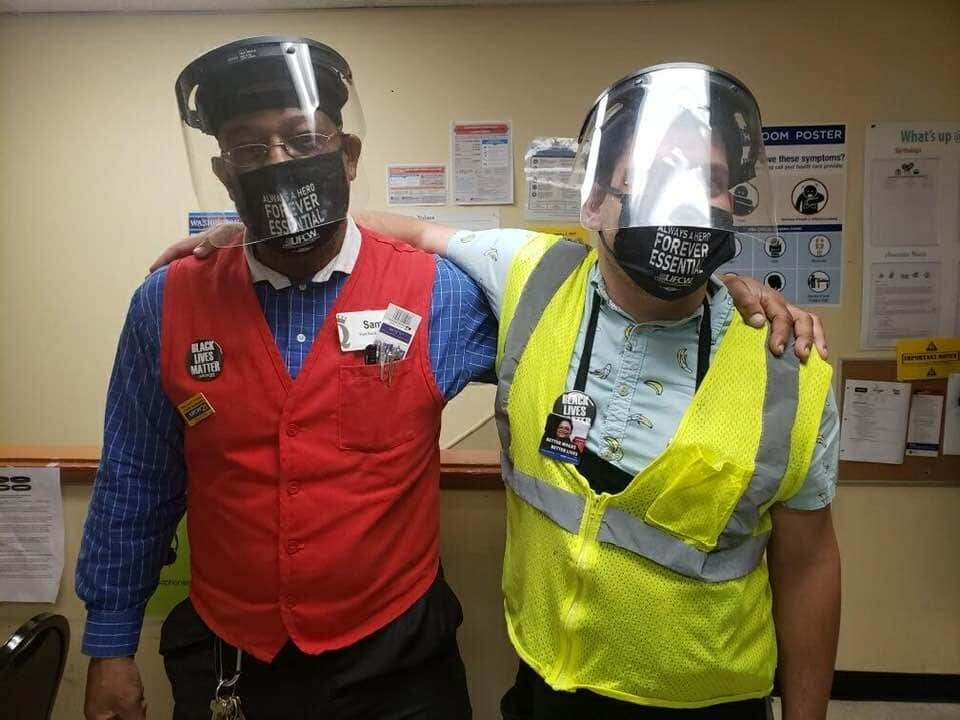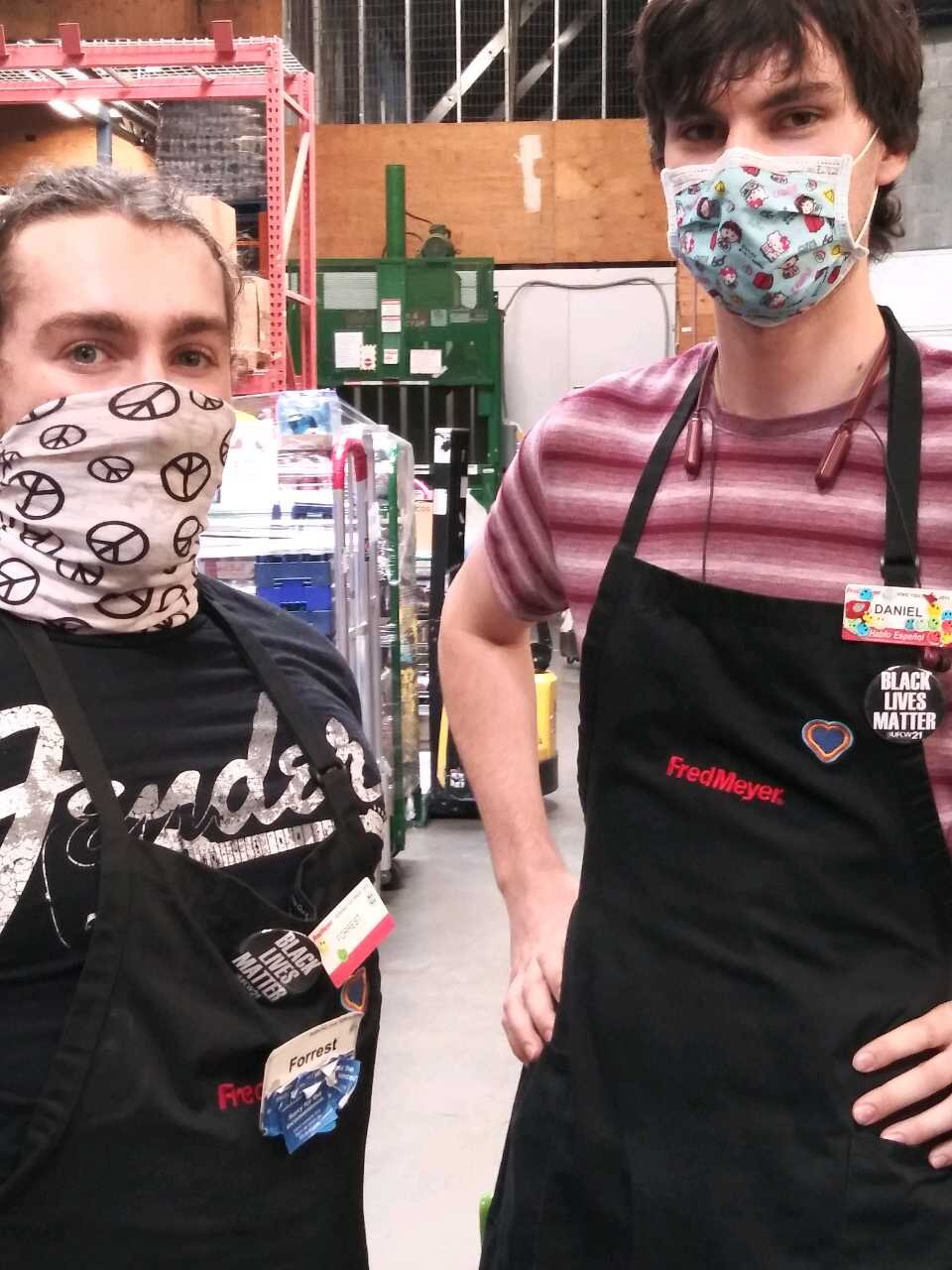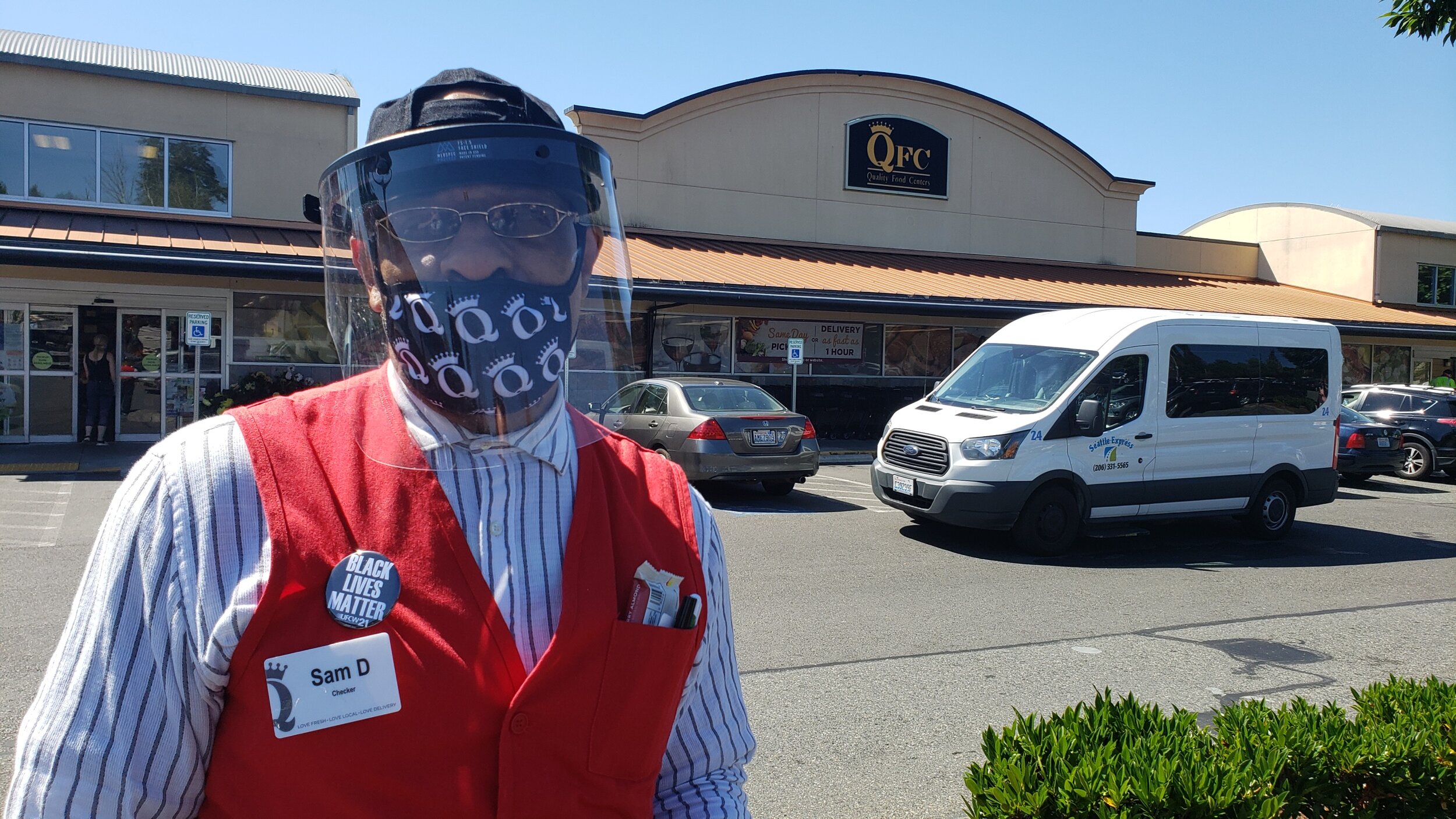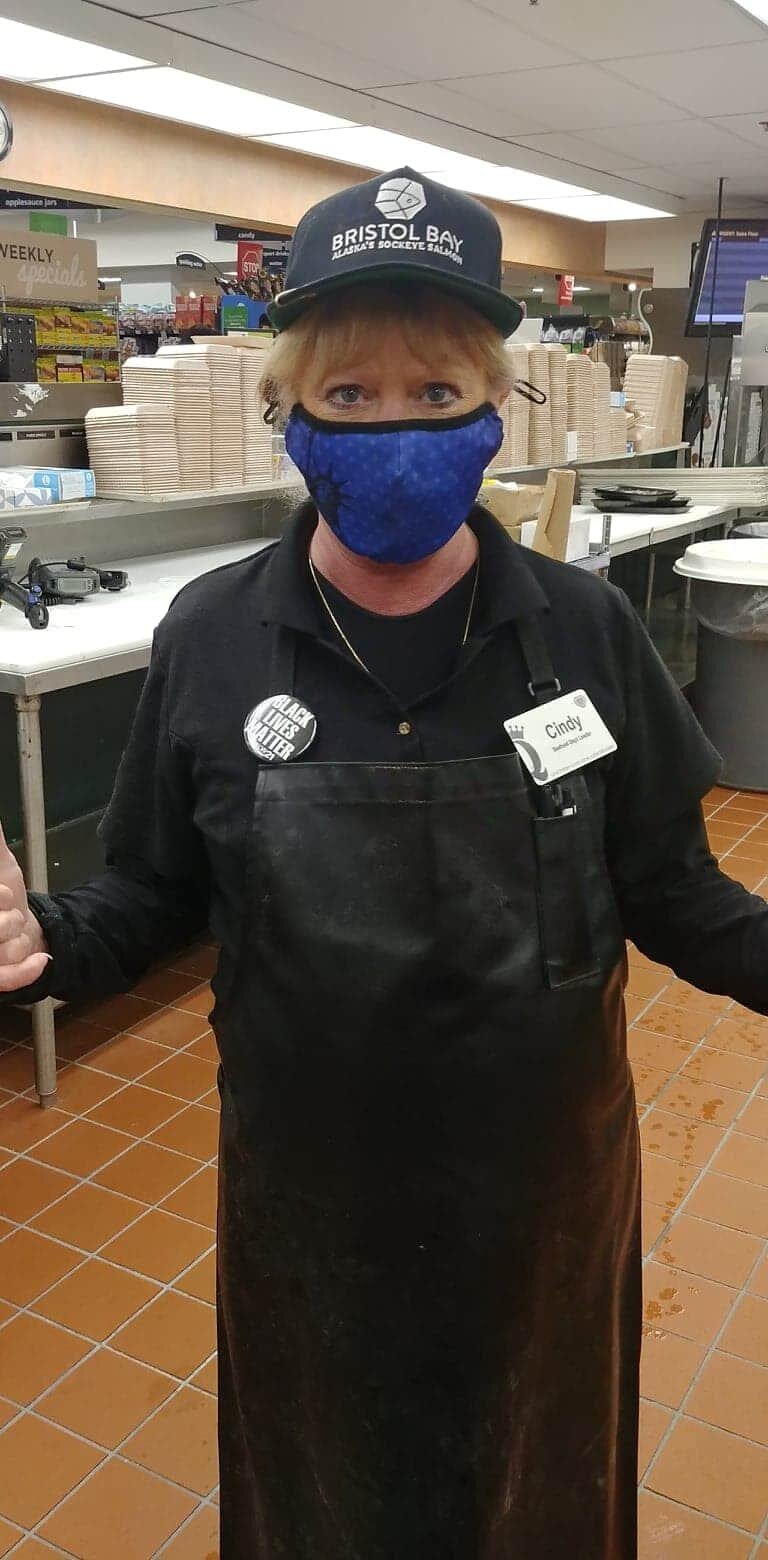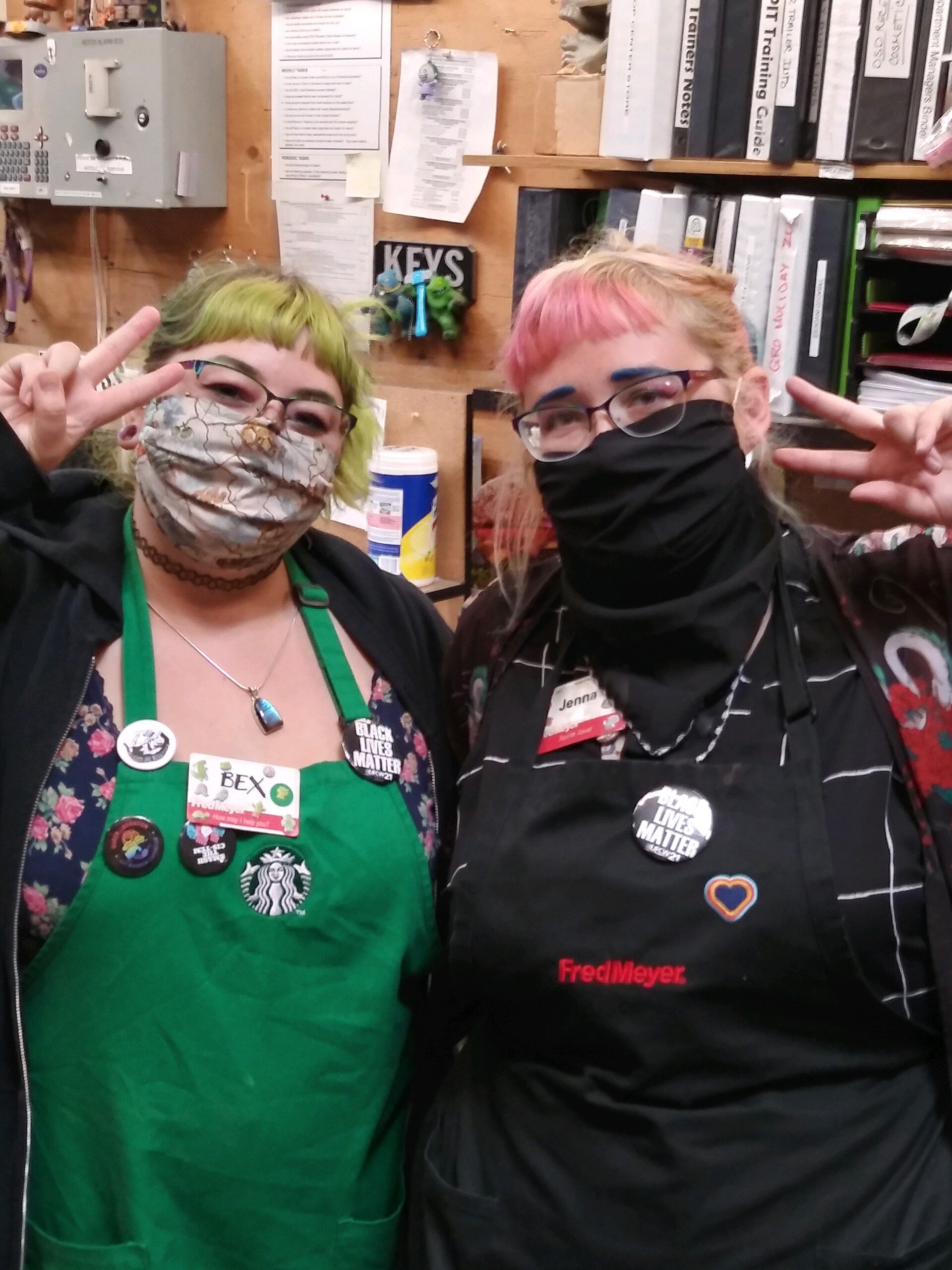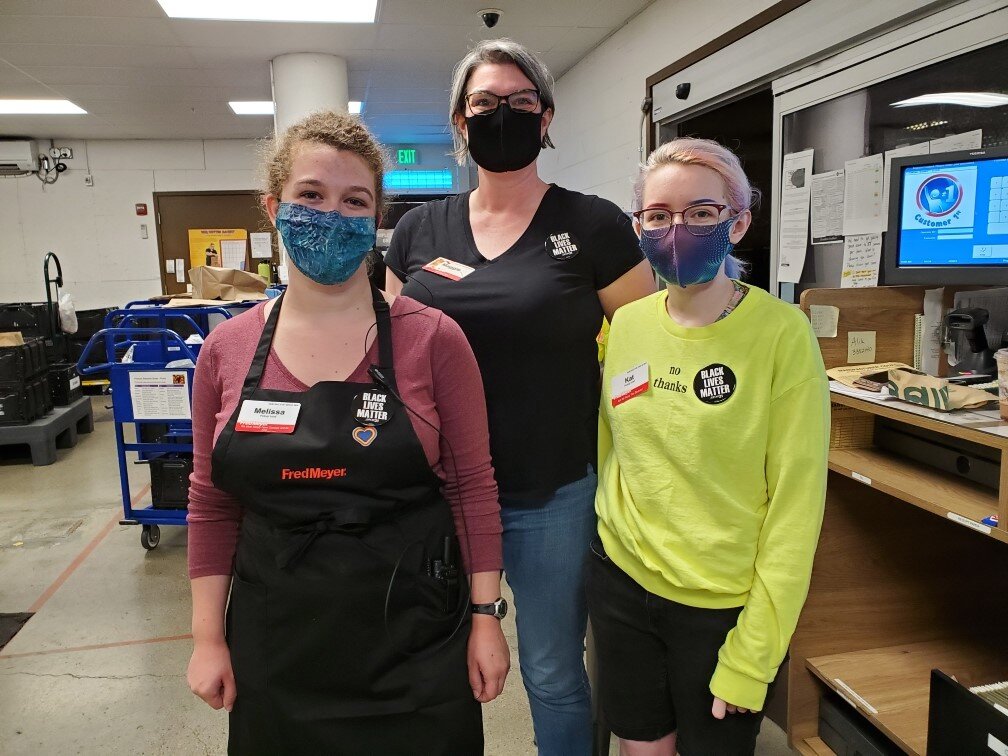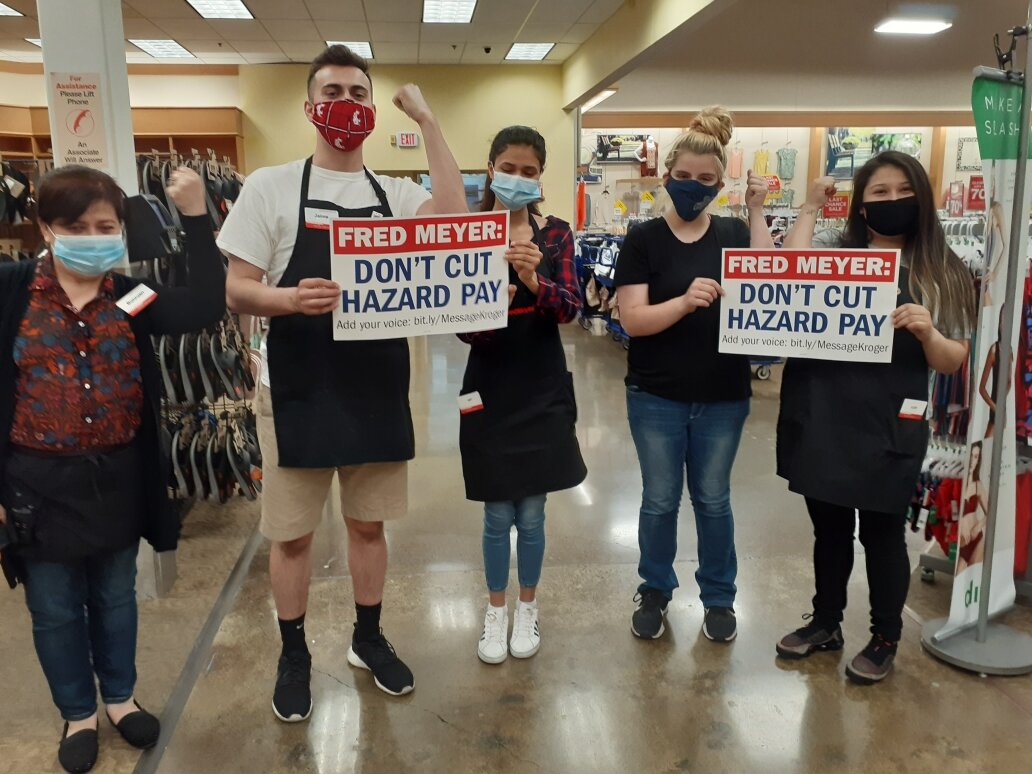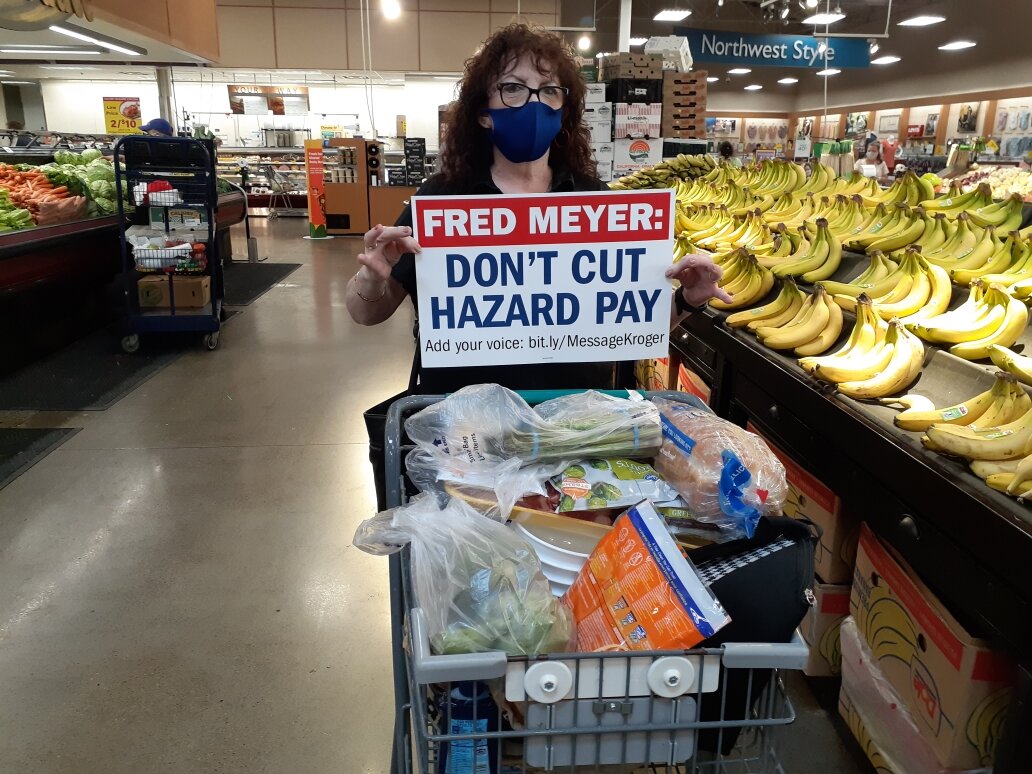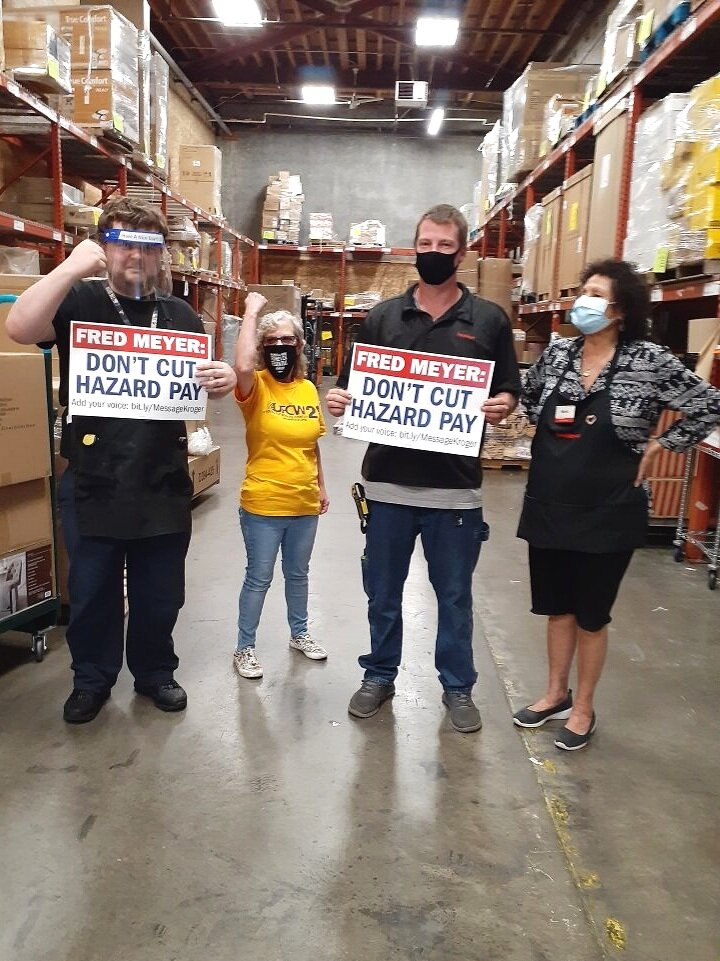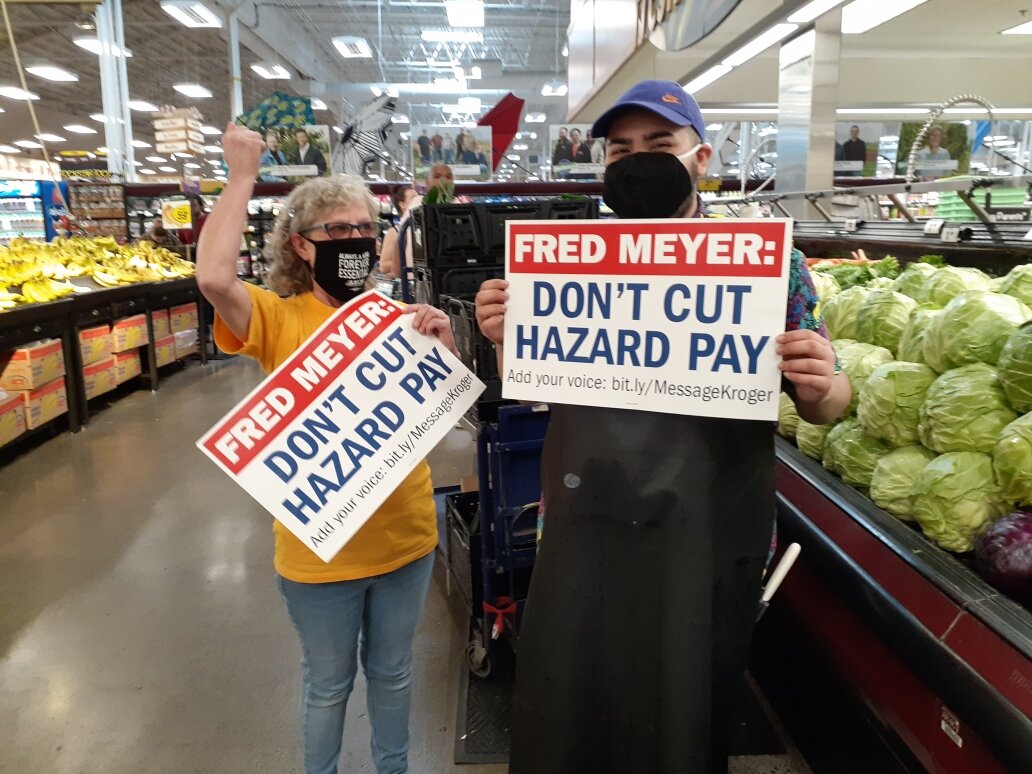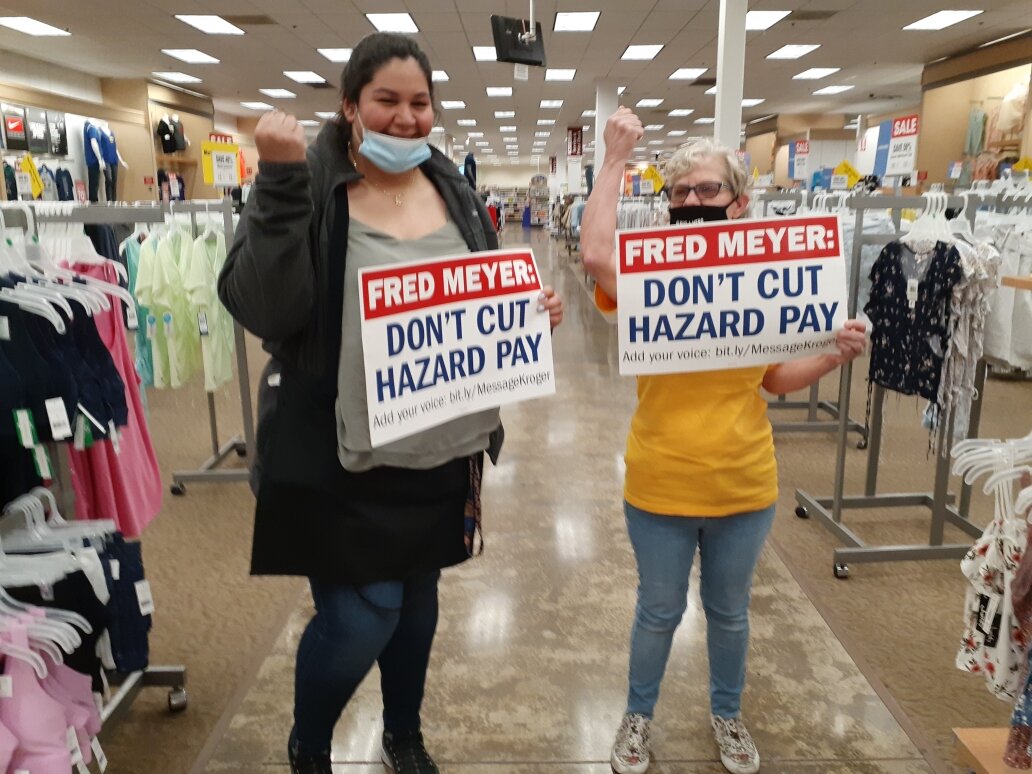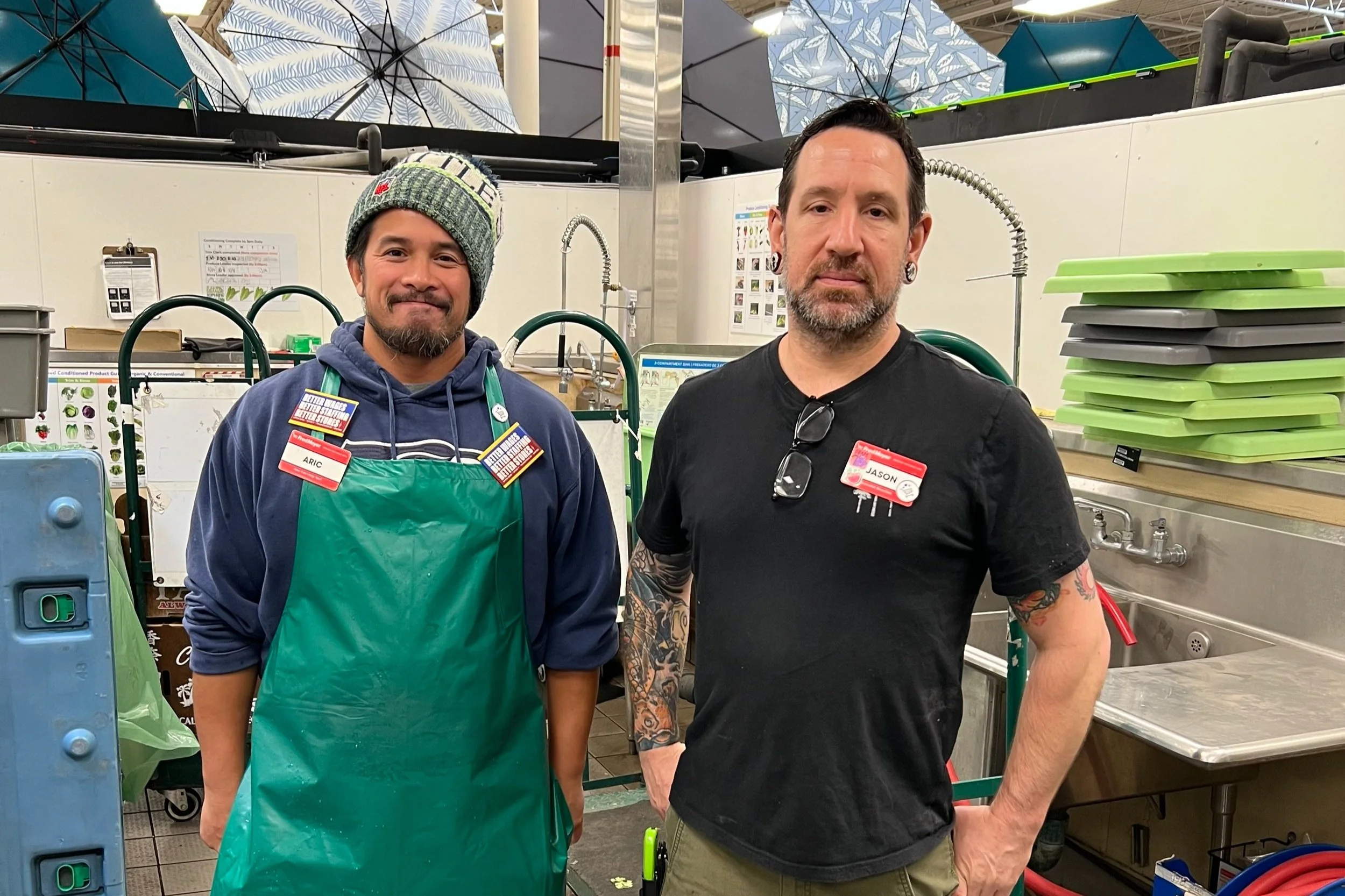Grocery Store COVID-19 Safety Checklist
/Coronavirus is a serious workplace health hazard. All employers have a responsibility to provide a workplace free of safety and health hazards. If your grocery store employer is not complying with any part of this checklist, contact your Union Rep or file a safety report with UFCW 21 at safetyreport@ufcw21.org.
If you are not a UFCW 21 member and have questions about your safety at work, text a UFCW 21 organizer at: 803-820-2121
SAFETY CHECKLIST FOR GROCERY STORES IN WASHINGTON STATE
SIGNAGE:
Conspicuous signage at entrances and throughout the store with occupancy limits, policy on face coverings, six-foot physical distancing guidelines, and instructing customers to stay home if they are experiencing symptoms of COVID-19
6-foot distance markers in checkout lines and other high-traffic areas to maintain 6 feet of physical distancing
PHYSICAL DISTANCING & BARRIERS:
6-foot physical distance is maintained and enforced between all workers and all customers in all interactions at all times
Where strict 6-foot distancing is not feasible for a specific task, physical barriers (e.g., plexiglass shields) and other measures like limiting staff or customers in an area, or staggering break times and work times are used
Building occupancy is limited to appropriate level required by state or county regulations – As of 11/16/2020: 25% of building occupancy according to fire code, not including staff
Contactless payment systems, automated ordering, and pickup or delivery are used wherever possible
PERSONAL PROTECTIVE EQUIPMENT:
Cloth facial coverings are worn by every employee not working alone on the jobsite unless their exposure level dictates a higher level of protection
Reusable cloth face coverings are used when risk for transmission is low
Disposable masks are required when risk for transmission is medium, e.g. stocking produce around customers during store hours
Face coverings are cleaned or replaced after use or when damaged or soiled, are not shared, and are properly stored and discarded
Other personal protective equipment (PPE) is provided such as face masks, gloves, goggles, face shields as appropriate/required for
INFECTION CONTROL:
All workers are screened for COVID-19 symptoms at the beginning of each shift
Employees who feel or appear sick or have any symptoms of COVID-19 are immediately sent home
Employer completes all necessary steps when a positive or suspected positive COVID-19 cases is identified in the workplace
This includes notifying all close contacts of the positive or suspected positive worker(s) and allowing positive or suspected positive worker(s) to stay home and recover and all close contacts to stay home and quarantine for 14 days, regardless of whether close contacts are symptomatic
This also includes cordoning off areas where someone with probable or confirmed COVID-19 worked, touched surfaces, or spent any prolonged amount of time and following all CDC protocols to clean, sanitize, and disinfect the workplace before reopening them
Find all steps and expectations for when there is a confirmed or suspected COVID-19 case identified in the workplace here > >
A site-specific COVID-19 Supervisor is designated by the employer for the individual store
Worksite COVID-19 Supervisor monitors health of employees
Worksite COVID-19 Supervisor enforces COVID-19 job site safety plan
HANDWASHING & HAND SANITATION:
Handwashing required when arriving at work, taking breaks, using the bathroom, before and after eating/drinking/using tobacco products, and after touching contaminated surfaces
Frequent and adequate handwashing maintained throughout the day
Workers get breaks to wash hands regularly
Handwashing facilities have clean and hot or tepid water, soap, and paper towels and these are kept stocked
Hand sanitizer (with at least 60% alcohol) provided for workers and customers
SANITATION OF WORKPLACE, SURFACES, & EQUIPMENT:
Housekeeping schedule with frequent cleaning and sanitizing and an emphasis on surfaces that are regularly touched (“high touch” surfaces)
Sanitize and disinfect high touch surfaces frequently (e.g., restrooms, checkout counters, shopping cart handles, door handles)
Operating hours allow enough time to thoroughly clean, sanitize, and disinfect facilities between shifts
Increase frequency of washing utensils
Disposable gloves available and used for shared tools
Employee equipment including handhelds/wearables, scanners, radios, other tools are properly cleaned and disinfected before and after use
Fitting rooms (if available) are disinfected by an employee with appropriate supplies and PPE after each new customer use
Any items used by customers in fitting room and not purchased are removed from inventory and stored for no less than 24 hours
IN KING COUNTY: A designated sanitation worker is designated at all times to continuously clean and sanitize commonly touched surfaces according to CDC guidelines
IN KING COUNTY: There is a way to sanitize shopping carts and basket handles (can be with available wipes for customers or workers who sanitize between each use)
CUSTOMER COMPLIANCE & ENFORCEMENT:
Business does not serve customers or visitors who aren’t wearing face coverings
Individuals with medical conditions or disabilities are exempt from this requirement and are not required to carry proof of the condition or disability
Employer should offer to provide accommodation such as curbside pickup, delivery, or non-peak hour shopping for these customers
Customers must wear a face covering anytime they are not seated, and if seated anytime they are not eating
If seated dining is permitted by the state/county at the time, customers may remove face coverings to eat and drink, but must wear face coverings when sitting and not eating
As of 11/16/2020: All common/congregate seat areas and indoor dining facilities must be closed
PUBLIC HEALTH & COVID PLANNING COMPLIANCE:
Employer has a written plan addressing physical distancing, protective equipment, hygiene, cleaning, communication, screening, and disinfection of contaminated areas onsite and available to regulators
Employer notifies local health department within 24 hours if 2 or more employees develop confirmed or suspected COVID-19 within a 14-day period, or if employer suspects COVID-19 is spreading in the workplace
Employer cooperates with public health authorities in investigation of suspected and confirmed cases and outbreaks
Employer cooperates with infection control measures including isolation, quarantine, and environmental cleaning
Employer complies with all public health authority orders and directives
Employer fully complies with Washington’s High-Risk Workers Protection proclamation
TRAINING:
All workers are trained in the language they understand best about:
Signs & symptoms of COVID-19
How to prevent COVID-19 transmission
The employer’s COVID-19 policies (these must inform workers about the steps being taken in the workplace to establish social distancing, increased handwashing, and to prevent the spread of the virus
Handwashing length, duration, and frequency
Appropriate PPE use
Safe use of chemicals used to clean, sanitize, and disinfect
RIGHT TO REFUSE UNSAFE WORK
Workers who refuse to perform unsafe work do not suffer adverse action as long as their work refusal meets certain requirements (Refer to our UFCW 21 Q&A on unsafe work assignments here)
MORE INFO FROM STATE AND COUNTY DEPARTMENTS
Note: Where there is a contradiction between these documents and one requirement is stricter than another, the stricter requirement should be enforced.
Shopping in a grocery store or have friends and family who might help hold grocery store employers accountable for a safe workplace and shopping experience? Fill out a Grocery Store Report at GroceryStoreReport.com


